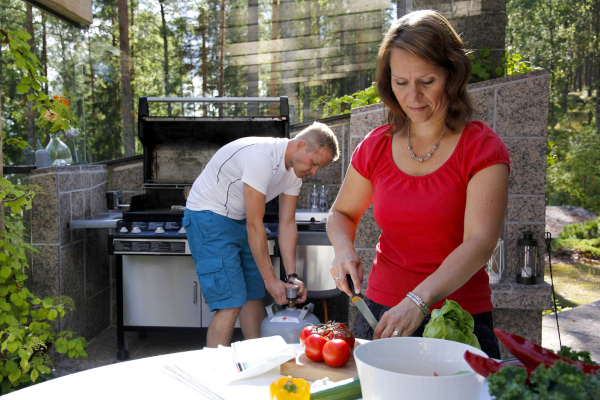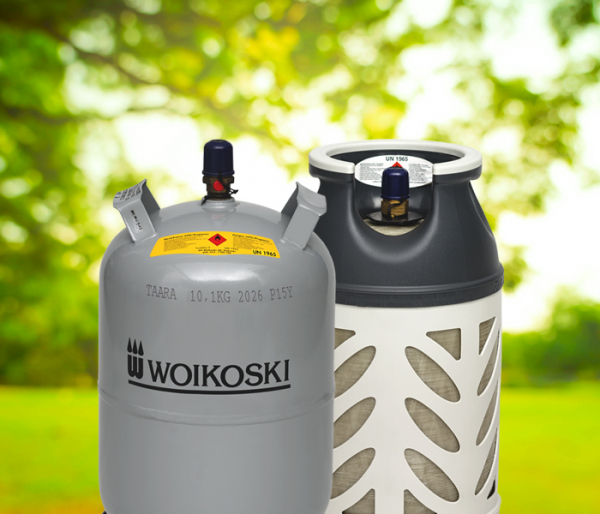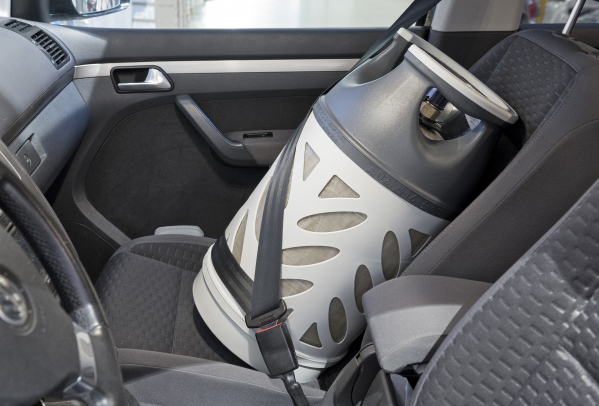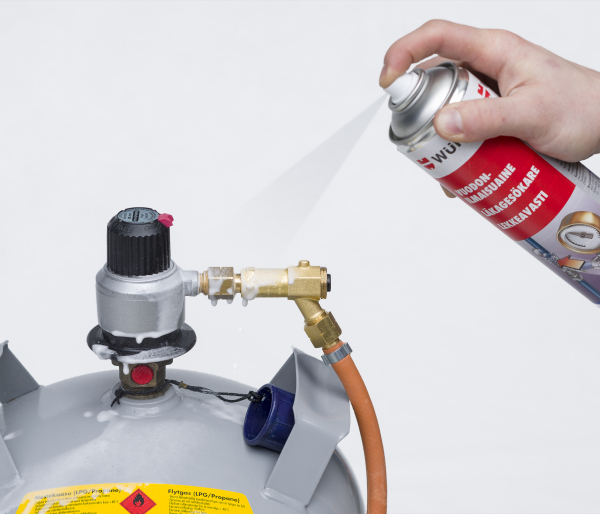
Always handle and store propane cylinders in an upright position. If the cylinder is in a horizontal position, the gas may come out of the valve in liquid form. Additionally, the safety valve keeps the cylinder from exploding in case of fire.
Use a home pressure regulator (30 mbar) to ensure the right pressure during use.
Always remember to close the cylinder valve after use to prevent gas leaks. Also remove the attached pressure regulator from the cylinder to avoid the risk of the valve pintle becoming stuck (PV).
If you discover a leak or suspect a leak (for example, you notice a smell of gas) in a building or a vehicle: – Close the cylinder valve immediately – Open the doors and windows – Do not smoke or use an open flame – Take the leaking cylinder outside immediately – Do not use electrical switches – Exit the building or vehicle.
– In case of fire, call the fire brigade – After ventilating the building or vehicle, use soapy water to check the hose and hose joints after first opening the cylinder valve – Call a professional to repair the fault in the equipment or the pipe leak.

Subjecting a propane cylinder to heat may cause the safety valve to open or leak gas. Do not place the propane cylinder under a barbecue or in any space in which the temperature may rise above 65°C.
Propane gas is denser than air and flammable. At high concentrations, it is an asphyxiant. If a leak occurs, the gas may accumulate, for example, in a basement, and it should therefore always be stored in a sufficiently ventilated area. A maximum of 25 kg of propane may be stored in living areas, above-ground storage areas, camper vans, caravans and boats. (N.b. The empty weight of the cylinder is also included in the maximum storage amount.) To make it easier to notice leaks, an odorant is added to propane.

The cylinder must be kept in an upright position and firmly secured during transport. In warm weather, take the propane cylinders out of the car if you park the car for a longer time.

Particular care is required when using propane as it is a very efficient and flammable fuel. Leaking gas, if ignited, may cause a violent fire or, at worst, an explosion. Because of this, regular inspections and maintenance of gas equipment are extremely important.
Before using a gas barbecue, check that the burners are clean, the joints are airtight and the hose is in good condition. If exposed to sunlight, a gas hose may become fragile and small cracks may form. You can check the condition of the hose by bending it or by using leak finder spray. If you can see hairline fractures in the hose, you should replace it. The tightness of the joints of the hose between the cylinder and the barbecue should be checked before using the barbecue and when changing cylinders. If the joints leak, tighten them and check them again.